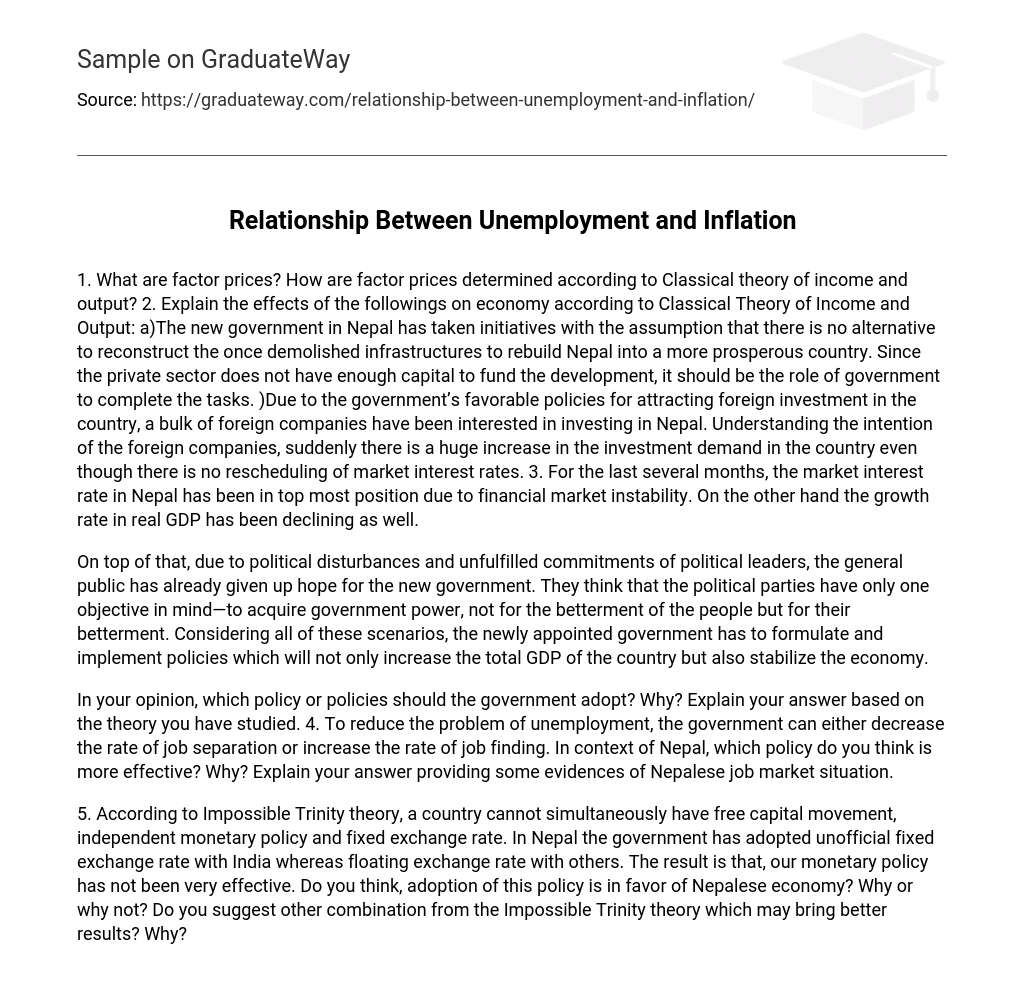1. What are factor prices? How are factor prices determined according to Classical theory of income and output? 2. Explain the effects of the followings on economy according to Classical Theory of Income and Output: a)The new government in Nepal has taken initiatives with the assumption that there is no alternative to reconstruct the once demolished infrastructures to rebuild Nepal into a more prosperous country. Since the private sector does not have enough capital to fund the development, it should be the role of government to complete the tasks. )Due to the government’s favorable policies for attracting foreign investment in the country, a bulk of foreign companies have been interested in investing in Nepal. Understanding the intention of the foreign companies, suddenly there is a huge increase in the investment demand in the country even though there is no rescheduling of market interest rates. 3. For the last several months, the market interest rate in Nepal has been in top most position due to financial market instability. On the other hand the growth rate in real GDP has been declining as well.
On top of that, due to political disturbances and unfulfilled commitments of political leaders, the general public has already given up hope for the new government. They think that the political parties have only one objective in mind—to acquire government power, not for the betterment of the people but for their betterment. Considering all of these scenarios, the newly appointed government has to formulate and implement policies which will not only increase the total GDP of the country but also stabilize the economy.
In your opinion, which policy or policies should the government adopt? Why? Explain your answer based on the theory you have studied. 4. To reduce the problem of unemployment, the government can either decrease the rate of job separation or increase the rate of job finding. In context of Nepal, which policy do you think is more effective? Why? Explain your answer providing some evidences of Nepalese job market situation.
5. According to Impossible Trinity theory, a country cannot simultaneously have free capital movement, independent monetary policy and fixed exchange rate. In Nepal the government has adopted unofficial fixed exchange rate with India whereas floating exchange rate with others. The result is that, our monetary policy has not been very effective. Do you think, adoption of this policy is in favor of Nepalese economy? Why or why not? Do you suggest other combination from the Impossible Trinity theory which may bring better results? Why?





